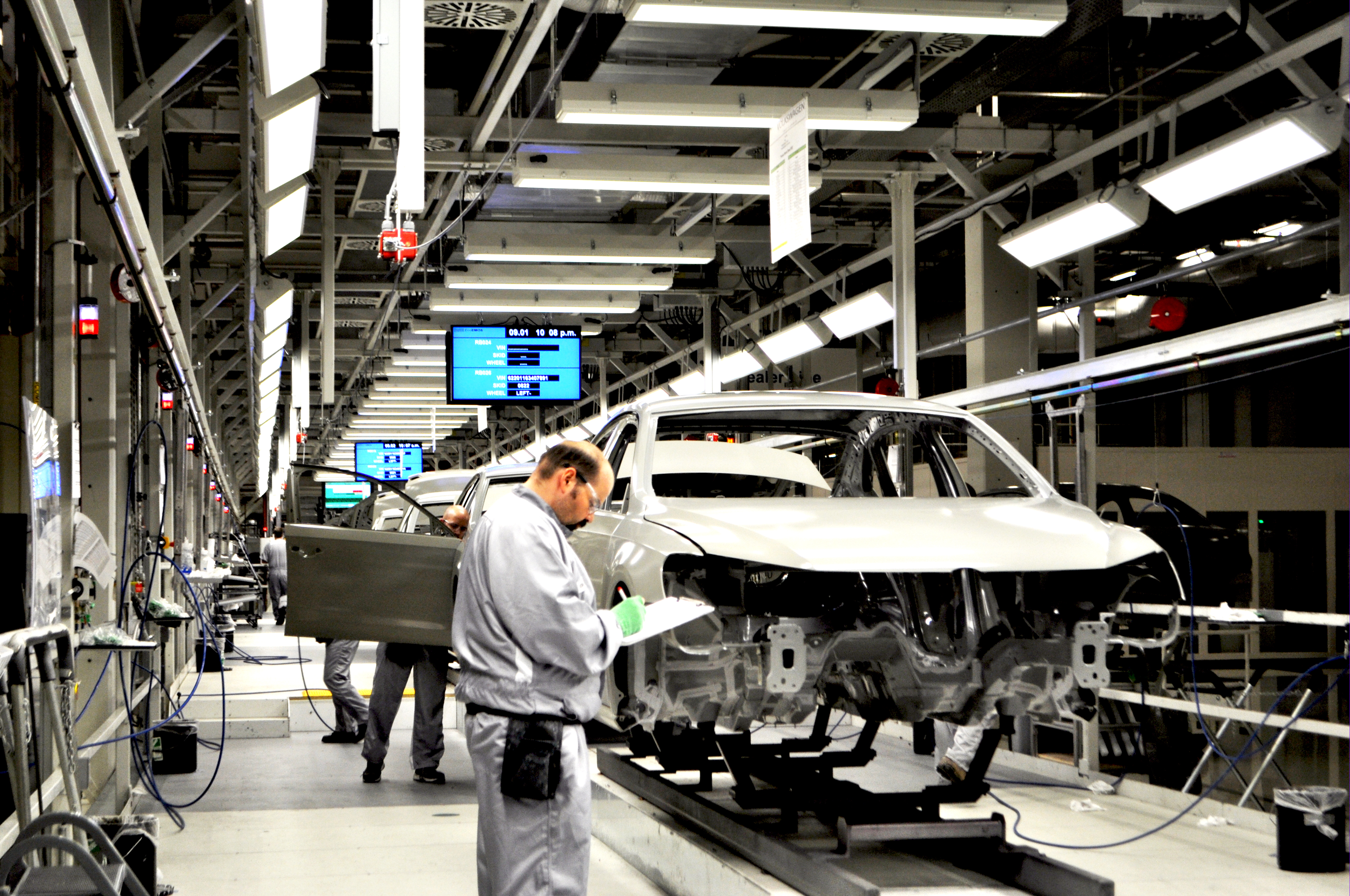Analysis

February 15, 2014
UAW Loses Vote at Volkswagen Chattanooga Plant
Written by Sandy Williams
The Volkswagen AG workers at the Chattanooga automotive assembly plant voted 712 to 626 against unionizing on Friday, Feb. 14.
The defeat is a major setback for the UAW which has seen dwindling membership in the last several years. The UAW’s membership has fallen from a peak of 1.5 million in 1979 to just around 400,000 nationwide. No foreign-owned automaker has ever been organized by the UAW in the Southern U.S. so organization of the Volkswagen facility would have been a triumph for the UAW. The move toward organization was backed by Germany’s IG Metall union and had Volkswagen’s cooperation in allowing union organizers to talk to workers.
 “Unfortunately, politically motivated third parties threatened the economic future of this facility and the opportunity for workers to create a successful operating model that that would grow jobs in Tennessee,” said Gary Casteel, the UAW official in charge of the VW campaign.
“Unfortunately, politically motivated third parties threatened the economic future of this facility and the opportunity for workers to create a successful operating model that that would grow jobs in Tennessee,” said Gary Casteel, the UAW official in charge of the VW campaign.
The vote followed a fierce campaign by Tennessee US Senator Bob Corker (R) and State Senator Bo Watson and other anti-union forces to block the UAW from unionizing the plant. Senator Corker said the UAW would cripple the plant like it did automakers in Detroit.
“If you look at the reputation the UAW’s left behind them, if you look at Detroit, how many companies from South Korea or Japan or Germany, how many of them you think make a stop in Detroit to look at locating there?” Corker said at a news conference this week. “I don’t think our employees, the wonderful people we have at the Volkswagen plant, I don’t think they fully understand the type of culture that the UAW creates inside a facility.”
Corker further shocked the UAW by insinuating that if the UAW bid is defeated, Volkswagen will add a new model to the manufacturing line at Chattanooga.
“I’ve had conversations today and based on those am assured that should the workers vote against the UAW, Volkswagen will announce in the coming weeks that it will manufacture its new mid-size SUV here in Chattanooga,” said Corker, without identifying sources.
Corker’s comment is in conflict with Volkswagen’s neutral stance regarding the potential unionization of the facility. Volkswagen Chattanooga CEO and Chairman Frank Fisher said the vote would have no bearing on where its new midsize SUV is manufactured. Currently the facility builds the Volkswagen Passat.
Watson said in a press conference what amounted to an outright threat, “Should the workers at Volkswagen choose to be represented by the United Auto Workers, then I believe any additional incentives from the citizens of the state of Tennessee for expansion or otherwise will have a very tough time passing the Tennessee Senate.” He added that unionization is not “in the best interest of Tennessee.” The original state incentives for building the Chattanooga facility amounted to around $580 million for Volkswagen.
“I encourage the workers at Volkswagen to carefully consider the decision they will make this Wednesday, Thursday, and Friday. I ask that they consider the effects, not just within Volkswagen, but within our community, our state, and our region,” said Watson.
The sentiment was echoed by Chairman Jack Johnson (R. Franklin) and Vice-Chairman Mark Green (R-Clarksville of the Tennessee Senate Commerce and Labor Committee. Johnson said the UAW’s presence would affect job growth in Tennessee and commented, “A vote for organized labor would impede our daily efforts to benefit Tennessee families as we compete nationally in job growth.”
Volkswagen executives would like to institute a “works council” that is similar to that used by the Volkswagen in other countries—something it is prohibited by U.S. law from doing without an employee union. Members of the council, elected by workers, would work with management to make decisions on facility operation, rules and training, while the union would negotiate pay and major bargaining points.
Tennessee House Democrats condemned the effort to dissuade unionization at the Volkswagen plant.
“In my 20 years on the hill, I’ve never seen such a massive intrusion into the affairs of a private company,” said House Democratic Leader Craig Fitzhugh.
“This is an outrageous and unprecedented effort by state officials to violate the rights of employers and workers,” said House Democratic Caucus Chairman Mike Turner. “Republicans are basically threatening to kill jobs if workers exercise their federally protected rights to organize. When the company says they don’t have a problem with it, what right does the state have to come in and say they can’t do it?”
President Obama also weighed in on the controversy with a comment on Friday during a closed door meeting with Democrats in Maryland. According to an aide that attended the meeting, Obama said everyone was in favor of the UAW except for local politicians who “are more concerned about German shareholders than American workers.”
UAW officials say they will continue their unionization efforts at the Daimler AG plant in Alabama.






